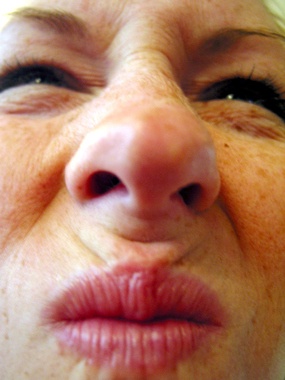I teach things that many find offensive. Whether it’s articles containing racist language in my “Gender, Race, and Class” course or descriptions of oral insemination as part of the Sembia male’s coming-of-age rituals in my anthropology course, I know that some students are going to be offended, sometimes deeply.
Over the years, I’ve come to view offense as a particularly useful state of being – but only when the offense one feels is used properly. Most people view being offended as an excuse for shutting down, even going (you guessed it) on the offensive. They refuse to be party to whatever offensive material is being presented to them, whether it’s someone making a sexist joke or a politician’s attack ad.
Obviously I can’t have students shutting down – or worse, feeling so put upon that they lash out at me or their fellow students. My classroom is, after all, a learning environment. But being offended is one of the key parts of the learning process. It is through taking offense that we discover the limits of our own knowledge, understanding, or compassion, and therefore it is at the point of offense that we have the greatest potential to grow as people.
Consider the kinds of situations that make us feel offended. We take offense when:
We are confronted with situations radically different from those we’re used to. We experience situations that conflict strongly with our own values. Our belief systems are challenged or dismissed as inadequate. We are labeled or otherwise treated in ways that are inconsistent with our self-image.
All of these situations can offer us an opportunity to grow as a person, whether by learning about value systems or ways of living that differ from your own (and which sometimes offer a more efficient, more fulfilling, or simply more reasonable way of doing things), or by increasing our understanding of other people (offering the opportunity, perhaps, to resolve conflicts before they become intractable), or simply by exposing the gap between the way others see us and the way we see ourselves (which can be eye-opening indeed). This can only happen, though, when we recognize offense for what it is – our mind’s way of processing unfamiliar experience. We have a whole set of mental standards that our minds are always comparing new experiences against to guide our actions and reactions; when no “entry” exists that we can categorize some situation into, offense kicks in – “this is wrong,” it says. At that moment, we can act in ways that prevent growth – attacking someone, condemning them, walking away, or becoming defensive – or we can use that offense as a trigger to kick us into “understanding” mode. Try thinking about these points next time you’re offended:
Offense is not injury. The most important step to keeping a level head in the face of serious offense is to remember that just because something offends you doesn’t mean that it hurts you in any way. Be careful to sort out your immediate, emotional response from the actual practical effect of whatever offensive situation you’re confronting – most of the time, you’ll find your life can go on just fine regardless of this offensive thing. People aren’t stupid. For the most part, people do things for reasons that, at least at the time, seem like good ones. And when they have the weight of tradition behind them, they’re usually right – societies that do things that are actually and truly wrong tend to be extinct. No matter how difficult it is to accept, you have to acknowledge that many practices that seem utterly impractical and stupid have endured for hundreds or even thousands of years without killing, maiming, or traumatizing the people who practice them. There’s more than one way to skin a cat. The way you do things will always seem like the right, best, and only way to do it – but it’s not. Try to recognize the value in the way other people do things – often you’ll find that, as odd and offensive as it might seem at first, it actually manages to accomplish the same ends as your “right” way of doing things. You’re pretty weird yourself. Never forget that to an outsider, everyone seems weird. We are always exactly as foreign to others as they are to us. Try to look at some of your practices from the outside and see just how weird you really are. Clarify, clarify, clarify. Since offense usually arises at the point of misunderstanding between two people, cultures, or social contexts, dampen your moral outrage for a second to ask some questions. Although asking a question or two might seem easy, in my observations it takes a great deal of courage to ask even the simplest questions – we all want to protect our self-identity by refusing to look ignorant, vulnerable, or unprepared. But of course, we often are ignorant, vulnerable, or unprepared – and sometimes all three. Make sure you actually know what’s going on! Those shoes are tight. You know the saying “Before you judge someone, walk a mile in their shoes”? Well, it’s one of those sayings that are actually pretty true. Try to see things from other people’s viewpoints – and often enough, the offense just melts away.
Of course, there are situations where immediate action is necessary, as for instance when people are being injured. But a lot of us end up with a “think first, justify later” attitude that causes more conflicts than it solves. Welcoming offense as an opportunity rather than a problem is a step towards reducing the conflict around you – by any measure, an entirely non-offensive thing!
